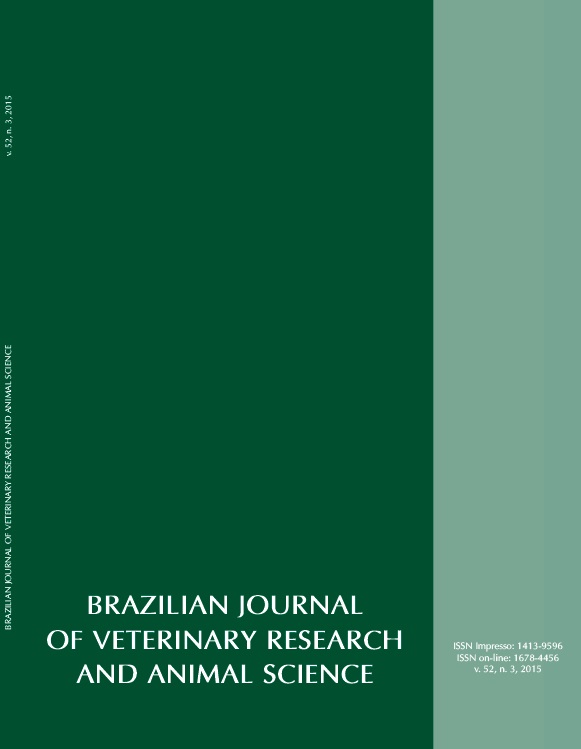Characterization of cattle breeding systems with reproductive activity in South-Central Brazil
DOI:
https://doi.org/10.11606/issn.1678-4456.v52i3p217-227Keywords:
Cattle, Livestock, Breeding, System, CharacterizationAbstract
Between October 2001 and December 2004, the Brazilian Ministry of Agriculture, Livestock and Supply conducted a study to evaluate the epidemiological situation of bovine brucellosis in 14 Brazilian states. The work included an epidemiological questionnaire intended to assess possible risk factors for the disease in herds. This also fostered the development of a descriptive analysis of livestock in various regions. The results demonstrated the high heterogeneity of the production chain and inequalities between various actors of the productive chain. Overall, we found that most farm holdings raise few animals extensively, with low investment in technology, specialization and intensification of management. Considering the increasing participation of Brazil in global food production, the results reflect an optimistic outlook about the potential for production of meat and milk by the country if policies aimed at increasing productivity levels of small producers are introduced. Given the scarcity of such projects, we reflected on the need for further work with this approach and on the establishment of an integrated information system with respect to information regarding the health and productivity of cattle farms, whereas the greater knowledge about the environment will be the most effective actions to correct problems in the industry.
Downloads
Downloads
Published
Issue
Section
License
The journal content is authorized under the Creative Commons BY-NC-SA license (summary of the license: https://





